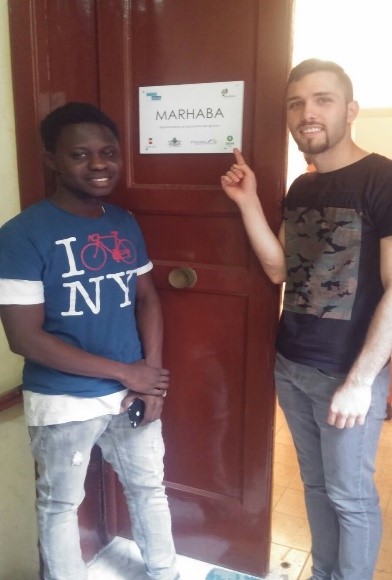This is a blog article written by the EPIM grantee organisations Dedalus (Italy), Deutsche Kinder- und Jugendstiftung (Germany) and Faros (Greece) who benefited from a “Joint Learning Initiative” grant from EPIM, accessible to organisations who wish to develop their organisational structures, skills and tools and to connect with other actors.
“In January 2017, Missing Children Europe hosted a conference in Malta on the alarming number of missing children in Europe. Following EPIM’s kind invitation for their partners to join, we all met up to discuss and exchange information on the situation in our respective countries and what we do to prevent children from going missing.
As an outcome of this meeting the three EPIM partners Dedalus from Italy, Deutsche Kinder- und Jugendstiftung from Germany, and Faros from Greece decided to apply for the EPIM grant “Joint Learning Initiatives” with the purpose of addressing the needs in our countries and exploring how we can work together to find common solutions to common challenges. We joined forces because we all work to protect refugee and migrant children and youth. We believe that no matter why these children are here in Europe, they deserve to be protected, receive education and a hope for a better future. We do that by providing care, training, awareness raising, running shelters, day centers and many more activities. So, thanks to the grant we received from EPIM, we had the opportunity to visit each other’s’ organisations in Berlin, Athens and Naples and develop a good understanding for the problems we face and, simultaneously, form strong and fruitful relations between us.
If you work in the field of migration and asylum – and perhaps this is also true for other fields – there is always a suspicion among friends, family and “the outside” world, if these kind of meetings are useful. Is it just waste of money and an excuse to sample Syrian food in the innovative refugee co-operatives being established in Berlin, original Napoli pizza or Greek mouzaka? Well, while we had the chance to do all of the above we were also given plenty of opportunities to see, hear and ask hundreds of questions on how migrant and refugee children are being treated in our countries. And in today’s Europe, it is extremely important that we understand each other’s systems and challenges.
For sure, it is difficult to put yourself in the shoes of a German organization that is well-run and funded by a government that cares and wants to invest in integration when you operate in Greece, where the state is almost absent and where the gaps are left for organisations and civil societies to fill. Or, if you are in Italy and experiencing a new political reality, where the work you do is in direct opposition to the ruling xenophobic and anti-immigrant sentiment. However, you also come to the understanding that not everything in Germany is perfectly organized and runs smoothly, and that the quality of work varies from region to region; that Italy is well in front of us in many areas such as health provision and cultural mediation and that Greece out of necessity is innovating new solutions to the problems on a daily basis.

Youth Apartment “MARHABA” in Naples
Our discussions during these three meetings took all kind of proportions with many diversions and parentheses and frankly, sometimes, we looked at each other in bewilderment not knowing where to start since all the issues we are facing seem equally important. But finally one thing inspired us more than anything else. In Naples we witnessed how 5 young refugees and migrants peacefully co-habitat in an apartment defying all cultural, linguistic and religious differences, putting their young energy into taking their destiny in their own hands and working for a better future for themselves but also their fellow migrants and refugees.
It was inspiring to see how the young people had a voice of their own and how they could influence their own future. It made us reflect on our work. Are we good enough to include the voice of refugees and migrant in our work? Do we actually use their contributions and promote them to positions where they can take decisions? And are we truly assisting grassroots initiatives and small refugee-led organizations, that have innovative ideas and plans but perhaps need help and capacity to turn their dreams into reality? In Europe we have some very good examples of successful migrant- and refugee-driven initiatives but too often these initiatives are small and poorly funded and they struggle to get their voice heard. To improve this, we, the well-established organisations in all the member states, needs to look beyond our own self-interest and to start including and integrating migrants and refugees in our daily work and decision making, but also help and gently push them to self-determination and self-organisation.
So we left the last meeting in Naples in October 2018 with the pledge to continue to work together and continue to assist refugee and migrant children to obtain their own strong voice that will be heard all over Europe and force the decision makers to listen.”